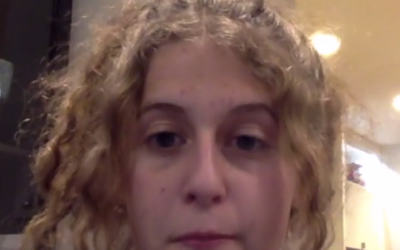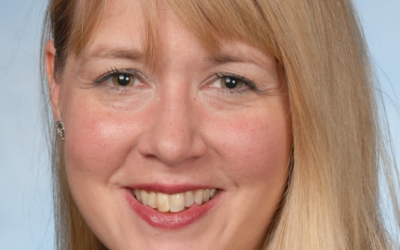Davis Academy Students Win National Documentary Prizes
Two eighth graders are honored by C-SPAN, the cable service, for highly personal works.
Two eighth grade students at The Davis Academy were winners this year of C-SPAN’s annual StudentCam documentary awards for works that were intensely personal.
For his documentary, 14-year-old Will Morrison was awarded second prize for middle schoolers for “The Missing Piece of Autism,” which was, in part, about his brother’s struggle with the disorder.
Will Morrison prize winner is at https://www.viddler.com/v/955f407a

It won him $1,500 in prize money and a broadcast for the documentary April 6 on the non-commercial public affairs cable network.
Ariella Lewis’ work, “Equality and Protection for All, Laws and the LGBTQ+ Community,” earned an honorable mention award and $250. The piece is about gender identification and the law.
Ariella Lewis’s documentary can be viewed at https://www.viddler.com/v/5f8e8c60
Said Lewis, 14, “I’m a non-binary individual, which means personally I don’t identify as either a boy or a girl. So I thought that this issue of gender rights hit home to me and that it affected me. I thought that I would have a pretty good perspective on it and about going into the law a little bit more.”

Among the issues the short documentary covered was the effort by gender rights groups to ban what has been called the “LGBTQ+ panic” or “gay and trans panic” defense in criminal cases.
The legal strategy is aimed at placing the blame for a defendant’s violent crime, including murder, on their reaction to a victim’s sexual or gender identification. So far 12 states have banned the tactic in their courts.
For work on gender issues, Lewis was also named one of the “20 under 21” award winners by the SOJOURN organization at its Purim Off Ponce event at Ahavath Achim Synagogue last month.
Morrison’s challenging subject of autism also hit home. His 18-year-old brother suffers from the illness and lives separate from the family. The Davis Academy student maintains that the difficulties that his family has experienced have multiplied during the pandemic over the past year.
“Autism has been a very close topic to me overall and I thought that since a lot of people haven’t really been talking about the autism community and also the autism community being affected by COVID-19, I thought that I should let people know that this is a very important issue that needs to be addressed.”
Both students produced their works as part of The Davis Academy’s 36-week video production course, which is an elective program held virtually this year. The program is open to any eighth grader at the school who wants to participate after their normal school day.

Instructor Kendrick Phillips, who runs the visual and performing arts program at the school, was impressed by how her two students handled such mature themes. But Phillips was not entirely surprised by their success.
“You would think it would be more challenging working with eighth graders than working with adults. But what I have found is the younger the student, especially teenagers who are passionate about what they believe in, the easier it is because they’re open to everything. They’re not yet risk-adverse and not used to saying ‘no;’ the world is still open to them in many ways.”
For Morrison, his experience at The Davis Academy with documentaries over the past year has provided him a new perspective on why they have become increasingly popular in recent years.
“A lot of people, I believe, are getting interested in documentaries because they want to immerse themselves in other parts of the world. They want to learn about other cultures. They want to learn about the struggles other people face. It’s not just learning, but also learning how to potentially help” solve the issues the world faces.
Despite the long months of concentrated study put into the prize-winning documentary project, Lewis sees an affirmation in the power of the visual image.
“I think documentaries are very effective because when you see an image, you relate to it more. You’re kind of captivated by it. You’re taken aback by it. Rather than seeing words in an article or reading a book, a documentary really takes someone like aback to see what’s really going on.”
According to Phillips, who pioneered the arts program at the Jewish day school, the students’ success is in part due to the important role that the arts play there and how the arts, both visual arts and the performing arts, are embraced there.
“It’s the animating core of a curriculum and a whole world, a whole body, a whole child- educational experience. So I’m lucky enough that we have the resources to make it happen outside of traditional classroom experiences. And we have students who are just deep, curious learners who are willing to embark on that journey as well.”



comments